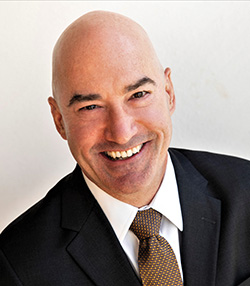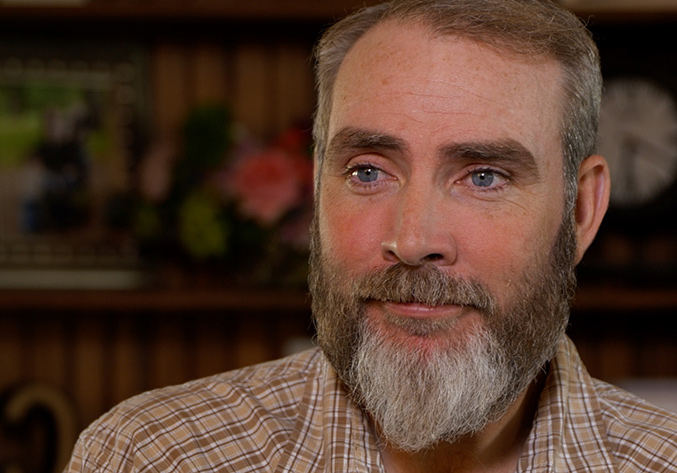FREE CONSULTATION: 214.522.9404

When vehicles hit pedestrians, the results are often catastrophic. To pursue the compensation you deserve after a devastating incident like this, you may need the assistance of a Dallas pedestrian accident lawyer.
Common pedestrian accident injuries include broken bones, traumatic brain damage, spinal cord injuries, amputations, and paralysis. Issues like these can change your life forever, so you need to do your best to ensure that the negligent driver who put you in this position compensates you properly.
OUR DALLAS PEDESTRIAN ACCIDENT LAWYER CAN HELP YOU PURSUE JUSTICE
Strolling on the sidewalk, sightseeing while on vacation, and walking to work should all be safe activities. Unfortunately, this is not always the case. Thousands of pedestrians suffer severe injuries in pedestrian accidents in Texas every year due to the carelessness of road users. If you or someone you love has been injured in this way, you may be entitled to compensation.
Pedestrian accident claims can be difficult to prove, which is why it’s so important to work with a competent law firm. A pedestrian accident attorney can help determine if you have a case, manage the entire legal process, establish negligence, and negotiate or litigate for an appropriate settlement.
Contact Crain Brogdon, LLP at 214-522-9404 today to schedule a free consultation.
COMMON CAUSES OF PEDESTRIAN ACCIDENTS
Public roadways are inherently dangerous, and pedestrians have a duty to pay attention to their surroundings and yield to other road users where appropriate. In some circumstances, though, pedestrian accidents come about because of unacceptable behavior by drivers of cars, trucks, and motorcycles, including:
- Distracted driving
- Reckless driving
- Speeding
- Driving under the influence of drugs or alcohol.
Sometimes, factors outside the control of both the pedestrian and the driver can result in these kinds of accidents, such as improper road signage, poor road conditions and mechanical issues with the vehicle. If your accident came about because of an issue like this, you’ll still be entitled to compensation, but perhaps not from the operator of the vehicle involved in the accident. Additionally, if the driver who hit you was working for a taxi or ridesharing company at the time of the collision, that company may be liable to compensate you, depending on the circumstances of the case.
COMMON PEDESTRIAN ACCIDENT INJURIES
When you’re hit by a vehicle weighing thousands of pounds, you’re highly vulnerable to serious injury. Even at low speeds, pedestrian accidents can cause devastating harm to victims. Some of the most common injuries resulting from pedestrian collisions include:
- Broken bones
- Spinal cord injuries
- Traumatic brain injuries
- Internal organ damage
- Loss of limbs.
SETTLEMENTS CAN BE CONSIDERABLE
Compensation for pedestrian accidents varies widely depending on the extent and nature of injuries, implications for future working ability, lifestyle impact, and any lasting disability or disfigurement. Damages in Dallas personal injury cases, under which pedestrian injuries fall, are segmented into three specific areas: economic, noneconomic and punitive damages.
Easy to quantify and calculate, economic damages can include the following:
- Medical bills: This includes expenses related to emergency transport and treatment, surgery, hospital bills, follow-up physician bills, medication, and rehabilitation. You may be entitled to payments for previous and outstanding bills as well as for future medical expenses.
- Lost earnings: Again, you should be entitled to recover damages for past and future losses here. Many pedestrian accidents leave victims with a permanent reduction in their earning capacity.
- Property damage: You should be entitled to compensation for any damage to personal property arising from your accident, particularly valuable assets like a smartphone or laptop.
You will also be entitled to noneconomic damages in the event of a successful lawsuit. Because these don’t have a specific dollar value, awards tend to vary considerably from one case to the next. Noneconomic damages may cover:
- Physical pain and suffering: You should be entitled to compensation for the physical pain your collision causes, both immediately after the accident and over the following months and years.
- Mental anguish: The emotional trauma associated with road accidents can stay with victims for extended periods, and it can be very difficult to process. Filing a lawsuit cannot address this directly, but it can allow for a monetary payment that will compensate you for having to deal with it.
- Loss of enjoyment of life: This occurs when an accident leaves you unable to participate in activities that were previously an important part of your life.
- Loss of consortium: This refers to the loss of intimacy between spouses or partners that can result from a personal injury.
- Disfigurement and scarring: You may be entitled to compensation for any lifelong visible differences your accident leaves you with.
If the individual responsible for your injury showed gross negligence or malice, punitive damages may be awarded. These are designed to punish the offending party and serve as a deterrent to future similar behaviors. Awards of punitive damages are the exception, rather than the rule, though; to learn more about whether you might be entitled to them, you’ll have to discuss your case with a lawyer.
PEDESTRIAN ACCIDENT STATISTICS
According to the Centers for Disease Control and Prevention (CDC), there were close to 8,000 deaths related to pedestrian accidents across the country in 2021; that’s around one death every 66 minutes. The statistics also revealed that one in every six people who died in road accidents that year were pedestrians.
Unfortunately, things appear to have gotten worse in recent years. According to the National Safety Council, the annual number of pedestrian deaths in the US has been climbing over the last decade or so, after a low in 2010.
Those aged between 55 and 64 accounted for the most pedestrian accident deaths, while children aged 5 to 9 accounted for the fewest, according to the NSC.
FREQUENTLY ASKED QUESTIONS (FAQs)
SHOULD I SEEK MEDICAL ATTENTION AFTER MY ACCIDENT?
Your first priority following any kind of accident should always be to obtain medical care. Even if you feel perfectly healthy, you could have sustained a serious injury that hasn’t made itself apparent yet, and early intervention is often crucial in cases like these. Aside from health care considerations, a prompt medical assessment may benefit any legal action you pursue later on, as hospital and doctor’s records frequently serve as important evidence in road accident cases.
WHAT ACTIONS SHOULD I TAKE AT THE SCENE OF THE ACCIDENT?
Photograph the accident scene and get contact information for any witnesses. Additionally, make a written account of what happened as soon as possible after the accident, while the details are fresh in your mind. Once you are able, contact a reputable pedestrian injury lawyer.
HOW LONG DO I HAVE TO FILE A LAWSUIT?
In general, the statute of limitations in Texas for personal injury cases is two years. This means you generally have two years from the date of the accident to file your lawsuit. If your pedestrian injury was the fault of poor road conditions and you are suing the government, you will have even less time to file a case. That’s why consulting with a lawyer as soon as possible after an accident is so important.
I AM FROM OUT OF STATE AND WAS VISITING DALLAS WHEN I WAS HIT BY A CAR. DO I FILE MY LAWSUIT IN TEXAS OR WHERE I LIVE?
You would file your lawsuit in Texas, and hire an attorney local to the area, as each state’s laws regarding personal injury differ.
A REPRESENTATIVE FROM THE INSURANCE COMPANY OF THE PERSON WHO HIT ME HAS CALLED. WHAT SHOULD I TELL THEM?
The short answer to this question is, “tell them nothing.” Refer them to your attorney. If you speak with them you may inadvertently disclose information that could negatively impact your settlement or even agree to a payment that does not adequately compensate you for your losses.
I THINK I MAY BE PARTLY RESPONSIBLE FOR THE ACCIDENT. DOES THAT MATTER?
Yes, it does matter, but it does not mean that you cannot collect damages. If you are 50% responsible for the accident, or less, and your attorney is able to prove that the other party was negligent, you will still be eligible for compensation in an amount that corresponds with the defendant’s share of the responsibility. If you would ordinarily be entitled to $100,000 in compensation, but are found to be 30% at fault, you will only collect $70,000.
WILL I HAVE TO APPEAR IN COURT?
Our goal is always to settle cases during the negotiation phase, and we are usually successful. However, situations exist in which defendants refuse to agree to appropriate settlements, making a trip to court necessary. If this happens in your case, you will likely need to appear as a witness. We understand that this can be a very stressful experience, but we’re prepared to help you get ready and offer you whatever type of support you need.
WORKING WITH A DALLAS PEDESTRIAN ACCIDENT ATTORNEY WHO WILL FIGHT FOR YOUR RIGHTS
Reach out to us today at 214-522-9404 to schedule your free consultation regarding your pedestrian accident injury. We are ready to listen to your story, learn about your experience and fight for justice on your behalf.

Attorney Quentin Brogdon
Quentin Brogdon has over thirty years of experience and expertise in the field of personal injury trial law. He is board certified in both personal injury trial law and civil trial advocacy. Quentin has received an AV rating from Martindale-Hubbell, the highest possible rating. This rating reflects an attorney’s ethics and abilities according to reviews from fellow attorneys. [ Attorney Bio ]






